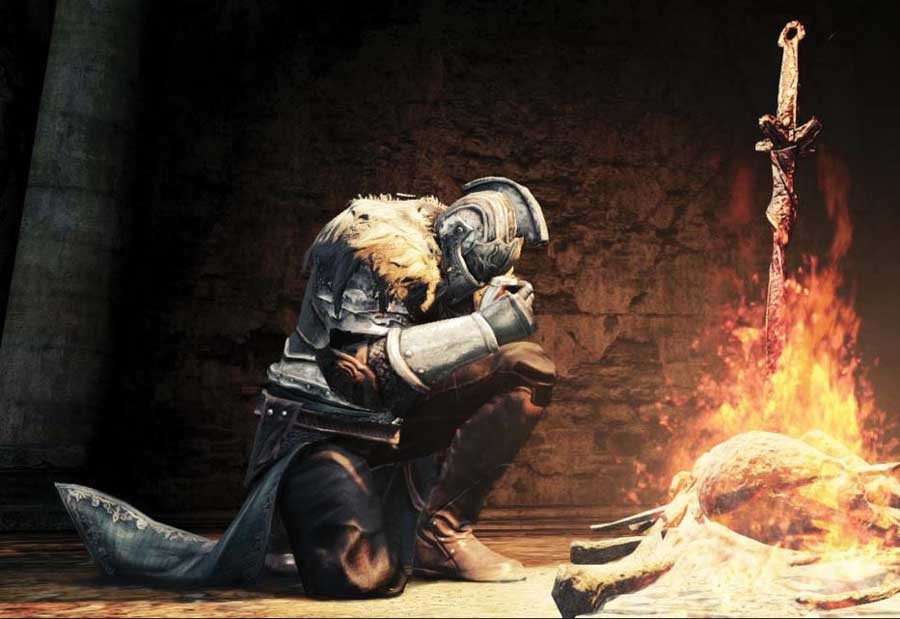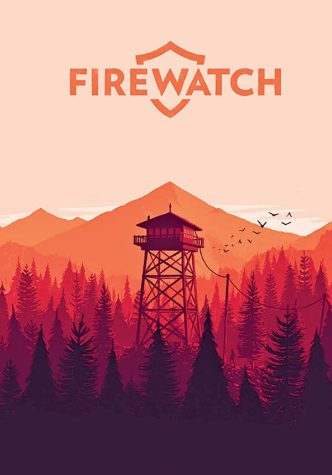“Dark Souls II” is enchanted by death
I have checked my equipment three times now in preparation for what lies behind the fog. I know my chances of surviving are slim at best, but I do not have a choice in the matter; the only way forward is through. Readying my shield, I advance into the mist. My enemy towers above me, a wooden giant composed of long, sinewy limbs. I lurch forward in a desperate charge and slash at the ankles of the beast, rolling this way and that to avoid its sweeping attacks. But before the monster can fall, my luck runs out. Claws, sharp as razors, tear through my flesh and I collapse on the battlefield. The screen fades to black as a familiar message appears displayed in red lettering: You Died.
Dark Souls II, like its predecessor, is a fantasy role playing game that showcases death in its many forms. Players will, at the very least, be stabbed, shot, devoured, crushed, drowned, and burned alive as they journey through the land of Dranglaec. Death hides around every corner in Dark Souls II, and as frustrating as the many, many deaths can be, few games offer such a satisfying sense of exploration, discovery, and triumph. As of this writing, I have only sunk a handful of hours into Dark Souls II, and as a result, I do not feel I have the authority to write a full-blown review of the game. However, I did come away with a distinct impression that was very different from my opening struggles with the first game in this series.
The original Dark Souls, released in 2011 and developed by Japanese studio From Software, was a game that I struggled with in every sense of the word. In my many stops and starts, I have only made it a fourth of the way through the game despite owning it for a full year now. Anyone who has played Dark Souls will agree with me: the beginning of the game is downright brutal. After finishing a simple tutorial designed to hide the game’s true difficulty, players are thrown into the meat of the game with little direction.
As a result, many newcomers will flounder for the first 10 to 20 hours as they attempt to understand what the hell is going on. This general lack of guidance and clear direction, while adding an element of unique challenge to the game, made the first Dark Souls downright inaccessible at first. I found it very hard to continue in a game that mercilessly beat me into a bloody pulp whenever I unknowingly made the slightest slip up. Of course, the more you play, the more you learn, but it takes a very patient gamer to master the original Dark Souls.
I found the opening hours of Dark Souls II, by contrast, to be significantly improved. Rather than decimating players with its difficulty level, the game decides to showcase its more subtle features up front. Even the tutorial, which takes place in a dark forest full of twisting roads, emphasizes the joys of exploration and discovery in this world, rather than the frustration of repeated death. Although there is still plenty of death; the difficulty has certainly not been toned down. Dark Souls II is still a game where even the lowliest enemy can disembowel you in just a few hits. But rather than have these early deaths create frustration, this sequel seems to remove the feeling that death is a punishment.
Instead, death is a learning tool. How you die determines how you should react the second time you face your enemy. You begin to learn how enemies behave and how to analyze your mistakes. You die so you can eventually live. This is a realization that all players of the original Dark Souls will come to if they stick with it, but Dark Souls II immediately puts this idea forward. Rather than forcing you into situations where you will die, the game lets you find death at your own pace. For example, I did not come across my first boss until I had spent three hours with the game. By contrast, the first Dark Souls throws a towering asylum demon at your poor starting character in the first 10 minutes.
When I was finished with the opening hours of the original Dark Souls, I felt a combination of weariness and frustration. With Dark Souls II, I wanted to keep exploring, fighting, and, of course, dying. It is a game that constantly challenges you, and overcoming that challenge is, more often than not, its own reward.
Josh LeMay joined the Basement Medicine staff in Spring 2014, assuming the role of staff reporter.










